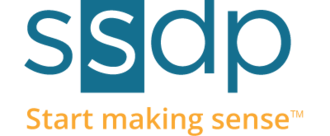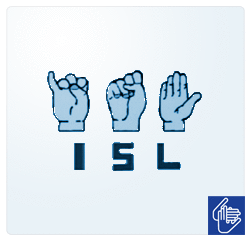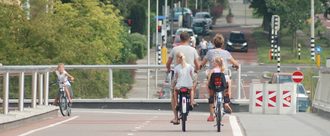- Featured
- Animal Rights
- Anti-racism
- Arts & Culture
- Children
- Climate
- Corporate accountability
- Crime
- Disability rights
- Economic
- Education
- Environment
- Food and Sustainable Production
- Gender Equality
- Governance and Transparency
- Health
- Housing
- LGBT Rights
- Mental health
- Northern Ireland
- Planning
- Privacy and Data Protection
- Rural Inequality
- Social Justice
- Trade
- Transport and Infrastructure
- Workers' Rights
- More
-
Make progressive, alternative schools available to all children regardless of financial backgroundEducational researchers agree that our current mainstream school system does not align with meeting the needs of children. We can no longer judge children's abilities in standardized testing, which ignores their creativity as well as talents and often makes them feel isolated, stupid and worthless. Especially children with additional needs are not nourished in the long outdated school system. In most European countries progressive schools such as Montessori, Sudbury, Homeschools and Waldorf Schools have long been a welcoming space for children to flourish, to gain self confidence and to become independent and happy citizens. Unfortunately these schools in Ireland depend fully on fundraising and fees alone because they do not receive a single cent from the Irish government. Teachers often partially work for free, because they believe in the significance of these educational establishments, and more importantly in the children's right to self-direct their learning, no matter of their financial background. It is time to allow parents and children to choose how their personalities will develop healthily, without a religious indoctrination, by letting them learn in an alternative non-denominational school. Please add your name to this petition to collectively ask our new Minister for Education, Joe McHugh, to spread the allocated funds for education more fairly by including alternative schools such as Montessori, Sudbury or Steiner, as well as homeschooling in the state funding, so that no child has to pay fees in order to grow there. With good hopes for the future, Carolin, a former teacher1,063 of 2,000 SignaturesCreated by Carolin Cordes
-
Save Weaver Square Gardens & AllotmentsDublin City Council are set to bulldoze the Weaver Square Community Garden & Family Allotments from 31st December 2018. This is a serious concern for ALL residents of Dublin 8: 1. Dublin 8 is being subjected to an onslaught of short-term, high-density property development (Hotels, student accommodation) at the expense of the existing community. Over 2000 such units have been constructed in 2018 in this district alone. 2. Dublin 8, a high-density urban community, has the lowest amount of green space per m2 in Dublin. Now it will have even less! 3. This is the latest Dublin 8 community resource lost to property development in 12 months. We have already lost Dublin Food Co-Op, Green Door Market & Flea Markets. There is also uncertainty over the future of Meath St, Liberty Market, St Theresas & now Players Wills site developments. 4. DCC are reneging on written commitments to keep the Weaver Square community garden/allotments. 5. There are alternative vacant DCC sites that could be used for development without destroying this valuable Green Space. 6. Over 300 people benefit directly from the community garden & allotments on a weekly basis. These social, health, environmental & educational benefits will stop on 31st December. The garden & allotments are used by schools, pensioners, community groups & families.1,348 of 2,000 SignaturesCreated by Weaver Square Garden & Allotment Group & Allotment Community
-
Invest €105 million Into Mental Health in 2019Too many people have to wait to get the vital mental health care they desperately need. While the Government continues to under invest in our services, people get sicker and even die waiting for assessment and treatment. This has to stop - our mental health is too important. Mental Health Reform have said that we need at least 105 million to get our mental health services where they need to be.15 of 100 SignaturesCreated by Emily Duffy

-
Save Sean Walsh Park, TallaghThe top nine reasons why this is important is 1) We do not want to lose the SDCC depot as this will severely erode the ability to maintain the high standards within the park thereby threatening our Green Flag status 2) We will lose the precious and unique urban farm that delights children 3) We will lose the socially inclusive community garden 4) We will lose the St John of God garden that provides horticultural therapy for people with various disabilities 5) The highly invasive Giant Knotweed is present on the site. The proposal to move it is dangerous and reckless as Whitestown Stream runs parallel to the proposed building site 6) We will lose the last remains of a 200 year old bridge that should be a protected structure 7) Every inch of Sean Walsh Park is an Objective OS zoned area i.e.to preserve and provide for open space and recreational amenities (as set out in the SDCC Development Plan 2016-2022) 8) Putting old peoples homes beside Tallaght Stadium which hosts matches regularly and will host concerts represents extremely poor planning 9) There is at least one more appropriate site available in Tallaght for the proposed Cluid development that would not not cause any of the foregoing problems and issues. *If you wish to support our offline please email [email protected] with your name and address* See why Sean Walsh Park should be preserved from property development: https://m.youtube.com/watch?v=MpP7Osf3YYo2,309 of 3,000 SignaturesCreated by John Mug
-
Ireland for Sensible Drug PolicyDrug Policy, and the war on drugs has had children, parents, politicians and stranger murdered in broad daylight. Thanks to gang activity, I myself shake and fear at the noise of bangers going off. The entire country lives in fear of gangs, gangs fed through drug money, drug money coming from the "black market". Little do they realise that the failing drug policy, the politicians and their lobbyists are directly financing this through their stern, "moral" views on dirty drugs. It is absolutely unacceptable. I am sick & tired of burying my friends and lending their brokenhearted families a soaking shoulder to cry on because the government failed them. The governmental position on drugs, the policy set in place in the early 1970's, has absolutely failed them. Where were you when they found their bodies, that nobody heard of because the news would rather report the stash of Class A narcotics they found in a shed, behind a burnt out house and a car filled with hand guns and machetes. Where were you and where are you now? What are you going to do to change this? My name is Sandy Brun, I am a qualified Toxicologist and I hope to graduate with a Master's degree in Neuroscience & Pharmacology. You can find me on LinkedIn. I am sick and tired of burying my friends with dirty drugs in their veins, up their noses and everywhere else. I am sick and tired of being let down by this never ending agonizing political situation that is murdering my friends and breaking the hearts of their families. I've lived in Ireland since I was 10 years old, and I've buried a friend every year since I was 13. You're so proud of the 100th 1916 Easter Rising anniversary that the country celebrated 2 years ago. You're so damn proud to be Irish. You're so damn prejudicial and soft. Stand and fight. For our sons and daughters.38 of 100 SignaturesCreated by Sandy Brun
-
Eligibility for People Living With Disabilities for Household Benefits/Fuel AllowanceWe are in a housing crisis. Many people living with disabilities are forced to share accommodation. Even if they share with strangers people living with disabilities are not eligible for the Household Benefits or Fuel Allowance Package. So people who depend on electricity for medical equipment are excluded because they share accommodation. It makes no sense and feels discriminatory. Allow people living with disabilities eligibility for €35 a month for electricity and for the fuel allowance for the winter. People living with disabilities didn't chose this life and deserve not to be punished for it.11 of 100 SignaturesCreated by Disabled Nobody
-
Make Sign Language (ISL) a Leaving Certificate SubjectI think that if you can learn Russian, Ancient Greek and Latin for your Leaving Cert then you should be able to learn a language that people born here speak as their first language. I also think that it would encourage students to learn Sign Language, even if it is just a non-curricular language that has to be studied outside of school. If more hearing people could speak sign language, the deaf community wouldn't be so isolated in society.473 of 500 SignaturesCreated by Amy Walsh
-
Sign the Charter for Change and include people with disabilitiesPoverty and disability go hand in hand creating a cycle of inequality, isolation, and exclusion that leads to the most extreme forms of poverty. Over 50% of disabilities are preventable and directly linked to poverty related issues, including lack of food, water and healthcare. (UN) As many as 13.2 million people fleeing from conflict or natural disasters have disabilities. (UNCHR) 90% of children with disabilities in developing countries do not attend school. (Unicef) 15% of the world's population has a disability severe enough that their participation in family, community political life is limited. (WHO) To break the cycle of poverty and disability, we must ensure the rights, freedoms, dignity and inclusion for all persons with disabilities.13 of 100 SignaturesCreated by CBM Ireland

-
Don't cut the 79 Bus route from Cherry OrchardThere will be a public meeting in the Ballyfermot Civic Office at 7.30pm on Tuesday the 4th September. This meeting is to voice the feelings of residents regarding the cancellation of the 79 bus route from the main road up through Cherry Orchard. This means that anyone living in Cherry Orchard will have to walk to the main road of Ballyfermot to access buses. For all young and old it is very important to turn up and voice your concerns in protest of this proposal. As well as the 79 they want to remove the 76 bus route altogether and change the route of the 18 that will no longer go through Palmerstown or out as far as Sandymouth. All support is greatly needed to prevent our local needs from been taken away. There is public consultation on the 19th September between 3 and 7pm in the Ballyfermot Civic Offices...as this is happening, it is very important that residents and people who work in the Ballyfermot area to meet together as a community to develop a community stance.60 of 100 SignaturesCreated by Maureen McGovern
-
Cycling For All in IrelandIreland needs to unlock the current suppressed potential for cycling — transport, mental and physical health, and environmental benefits, and also more wide-ranging positives of mass cycling. These wider benefits include giving teenagers and parents freedom from the parent taxi; freeing many people across the country from the restrictive options of driving or depending on infrequent public transport; and supporting “last mile” trips to high-quality public transport.2,339 of 3,000 SignaturesCreated by Cian Ginty

-
Improve public transport for people with a disability.This is an important issue for all to remove inequality for those with a disability when accessing public transport. Unequal access to transport limits a person greatly as transport can unlock a range of opportunities for an individual with it allowing ease of access to necessities in life such as education and employment. Irish Rail is failing to provide adequate accessible transport for all, with people with a disability facing many barriers when using train services. These include: • 4 hour notice required to Irish Rail for those who need assistance getting on and off a train; • Reliance on staff being present for use of a manual ramp to allow a passenger who needs assistance to get on and off the train; • Lifts being left broken in train stations for long periods of time; • Visual and sound aids on board not working. Other issues which were highlighted from respondents in a study mentioned in 'Transport Access For All 2012' include: • More space for wheelchair users and better toilets on board; • Automatic ramps so wheelchair users could board independently; • A pass in place of tickets for disabled people because it can be difficult standing in queues. • Signposting of wheelchair accessible routes. Improvements need to be made to allow ease of access for people with a disability. We need to lobby and have support from the public in order for these improvements to come into action. The needs of the disabled should not be over looked when considering transport and they need to be met by the Minister of Transport, Irish Rail and relating bodies. Inaccessible transport for those with a disability widens the gap of inequality in our Irish society. The current infrastructure in place for Irish Rail does not match up to the modern technology available in our world today. 4 hours notice and unreliable lifts need to be a thing of past. Improvements need to happen and need to happen now.238 of 300 SignaturesCreated by Gillian Keegan
-
Stronger legislation to prevent discrimination against mental health in workplacesIts important because anxiety and depression can affect one in 6 people. As one of them I want to be able to contribute positively to society. I want to be able to be able to work. I want to be able to work with an organisation where having anxiety does not mean I live in fear of loosing my job if my employer finds out. Or be discriminated from promotions or progressing in an organisation if they know I have anxiety. I want to fulfil my potential and be treated with dignity not with misunderstanding or stigma.17 of 100 SignaturesCreated by Cat Mc












